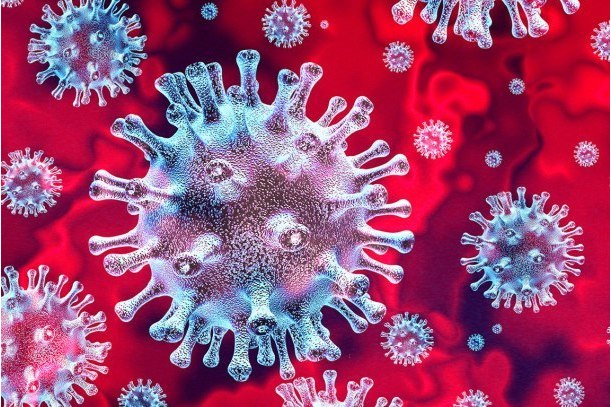Latest News
New report shows impact of COVID-19 in Africa is underestimated

News Highlight
The report says urgent, strategic action are needed in light of limited vaccine and mounting threat of new variants.
A new research from the Partnership for Evidence-Based Response to COVID-19 (PERC) indicates that the COVID-19 burdens experienced by people in Africa remain grave: 81 per cent of survey respondents reported challenges in accessing food, 77 per cent reported experiencing income loss and 42 per cent reported missing medical visits since the start of the pandemic. This is as the world battles new COVID-19 variants and supply and rollout of vaccines remains critically low in Africa.
The report calls for targeted public health measures for high-risk populations, increased surveillance in light of new variants, and scaled-up vaccine supply from the global community to control the pandemic in the continent.
"As case counts surge across the world, new variants emerge and vaccine rollout remains slow, it will be crucial for African Union Member States to use evidence-based strategies to manage COVID-19," said Dr. John Nkengasong, Director of the Africa Centres for Disease Control and Prevention (Africa CDC). "The PERC report provides valuable insights to countries to strategically tailor their ongoing responses."
According to a statement by the partnership PERC to Financial Nigeria today, limitations in testing capacity and surveillance – as well as uneven demand for testing – are likely masking the true severity of COVID-19 on the African continent, fuelling the dangerous myth that much of Africa has been unscathed by COVID-19. Test positivity rates were above 10 per cent across many Member States during the second wave – substantially higher than the 5 per cent maximum warning level suggested by the World Health Organization (WHO) and suggesting that many cases have gone undetected.
The statement said that vaccine acceptance was high among survey respondents – 67 per cent of the people said they would get the vaccine when it’s available – with several important caveats. Acceptance varied widely among countries, from 91 per cent in Morocco to 35 per cent in Tunisia and Cameroon. At the time of the survey, most respondents did not yet have access to vaccines or much information about specific vaccines rolling out in the region. In fact, among those who expressed hesitancy about vaccination, lack of information was a leading reason.
“Vaccine hesitancy is driven by high levels of disinformation, misinformation, and lack of information, which erodes trust in the safety and efficacy of vaccines,” said Dr. Richard Mihigo, Program Coordinator, Immunization and Vaccine Development, WHO's Regional Office for Africa. “Going forward, we must prioritize sustained and targeted campaigns which address the growing ‘infodemic’ around vaccines while providing evidence-based information to dispel myths and build confidence in vaccines. Communication and engagement is key to building trust and creating a positive discourse around vaccines from the ground up.”
Nearly nine in 10 respondents reported using masks when near others in February 2021 – almost identical to findings six months before. However, in some of the populous and hard-hit countries, such as South Africa and Ethiopia, self-reported mask use trended downward in February, suggesting the need to redouble efforts to promote this low-cost and effective intervention in some areas. Overall, self-reported adherence to measures restricting social gathering and movement declined significantly between August 2020 and February 2021.
Given the delayed rollout of vaccines and the threat posed by new variants, all AU Member States will need to scale up effective testing strategies to detect early indications of potential surges and sustain the strategic use of public health measures to prevent subsequent waves while ensuring social protection, the report says. The researchers conclude that clear, transparent communications from leaders and public health officials will be vital in building trust and influencing people to follow any further measures; respondents who expressed high satisfaction with their government, community leaders or Ministry of Health were more likely to report adherence to public health measures than those who expressed dissatisfaction.
“Countries are most effective controlling the pandemic when they consider what measures people will actually follow at this stage in the pandemic and take steps to inform, partner with, and support communities,” said Dr. Tom Frieden, President and CEO of Resolve to Save Lives, an initiative of Vital Strategies. “Analysis of PERC data can help governments predict adherence to preventive measures, craft effective communications and mount a stronger response to COVID-19.”
The PERC survey – the third in its “Using Data to Find a Balance” series – was fielded in February, when Africa was emerging from a second, substantially larger wave of COVID-19. PERC polled more than 24,000 adults across 19 African Union (AU) Member States, compiled social, economic and epidemiological data from a range of sources and compared results from the previous survey conducted in August 2020.
Among the recommendations of the report include that governments and the global community should invest in increasing capacity to detect, test, sequence and trace cases and new COVID-19 variants; prioritizing targeted, individual PHSMs (Public Mental Health Systems) to high-risk areas to maximize adherence for the long run and minimize secondary burdens; using an evidence-based approach to identify and offer relief to high-risk populations; and protecting health care workers via adequate personal protective equipment, fair compensation, paid sick leave and access to mental health care.
Some other recommendations of the report are prioritizing vaccination of health care workers and strategically communicating to the public to reduce stigma against them and to reinforce that seeking health care is safe; maintaining and strengthening vaccination information campaigns to bolster confidence, and supporting regional efforts to combat misinformation and build trust, in preparation for when vaccines become more available; and stepping up action from the global community to increase vaccine production, ensure equitable allocation and share technological expertise to facilitate local vaccine manufacturing with Member States.
PERC is a consortium of global public health organizations and private sector firms including Africa CDC, the WHO, Resolve to Save Lives – an initiative of Vital Strategies – the UK Public Health Rapid Support Team, and the World Economic Forum.
Related News
Latest Blogs
- Why electricity privatization failed (2)
- How net metering can boost embedded power generation
- Adaora Umeoji and gender in Nigerian banking leadership
- Is protest an endangered human right of Nigerians?
- Issues in using price control in Nigeria
Most Popular News
- IFC, partners back Indorama in Nigeria with $1.25 billion for fertiliser export
- Ali Pate to deliver keynote speech at NDFF 2024 Conference
- Univercells signs MoU with FG on biopharmaceutical development in Nigeria
- CBN increases capital requirements of banks, gives 24 months for compliance
- CBN settles backlog of foreign exchange obligations
- Nasdaq Dubai welcomes $600m sukuk listing by Islamic Development Bank






